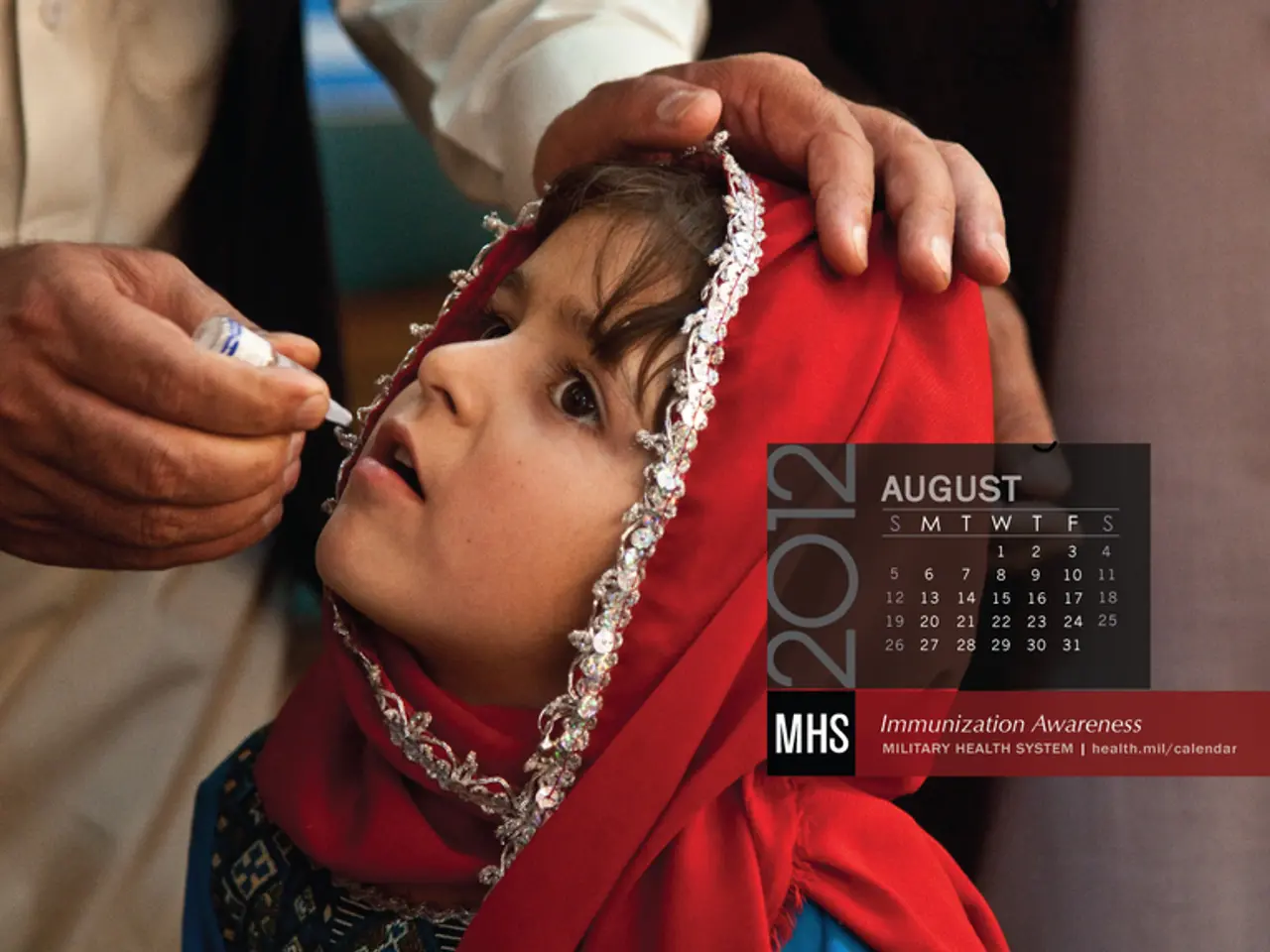Urgent call for immediate vaccination by infection experts
Russia Strengthens Meningococcal Vaccination Program Amid Surge in Cases
In response to a significant increase in meningococcal disease cases, Russia has intensified its national vaccination program. Emergency measures are being taken to combat the rise, with a focus on serogroup W meningococcus which has become predominant.
Doctor of Medical Sciences Mikhail Favorov has called for including vaccination against meningococcal infection in the national vaccination schedule. He also emphasizes the need for investments in the production of these vaccines to ensure wide accessibility. Infectious disease specialist Ekaterina Stepanova urges immediate action due to the surge in meningococcal infections in Russia.
According to the latest data, over 1200 cases of meningococcal disease have been registered in Russia since the beginning of 2025. This year's number significantly exceeds last year's total of around 600 cases. The mortality rate from meningococcal infection remains high at 21%.
Currently, vaccination against meningococcal disease is only conducted based on epidemiological indications, covering only risk groups and those who have been in contact with infected individuals. However, recent proposals aim to expand vaccination coverage, especially in young children and possibly at-risk adults.
Meningococcus remains a leading cause of bacterial meningitis (GBM) cases in Russia, accounting for 50% of cases. The Russian government is conducting clinical trials assessing multivalent meningococcal vaccines targeting serogroups A, C, Y, W, and X, aiming to update vaccine formulations and broaden protection in adults and children.
Genomic epidemiological surveillance platforms like VGARus enable Russia to track meningococcal genetic shifts promptly, informing emergency vaccination strategies. While BCG vaccination for tuberculosis is well established and widespread in Russia, the meningococcal vaccine programs are comparatively focused on epidemic prevention and targeted expansions as needed.
The "Perimeter" system is functioning at the Russian border to identify individuals with signs of chikungunya fever. Despite the absence of imported cases in Russia, diagnostic systems are in place for timely detection of chikungunya fever. Rospotrebnadzor has strengthened control in response to the spread of chikungunya fever in China.
In conclusion, as of mid-2025, Russia has an ongoing national meningococcal vaccination program that includes monitoring and responding to epidemiological changes. The current focus is on serogroup W meningococcus, with emergency vaccination measures emphasizing rapid immunization of at-risk groups, especially children under 5 years old, amid a noted 39% increase in meningococcal infection incidence in this group in 2023. Expanded vaccination coverage is proposed to address rising incidence and evolving serogroup dominance.
Scientist Doctor Mikhail Favorov suggests the integration of meningococcal infection vaccination into the national vaccination schedule, while calling for increased investments in vaccine production for wide accessibility. The recent surge in meningococcal infections in Russia has led to discussions about extending vaccination coverage, especially for young children and high-risk adults, as meningococcus continues to be a major cause of bacterial meningitis cases in the country.





